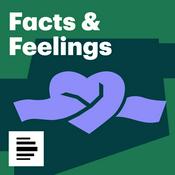The EU AI Act Newsletter
Risto Uuk, Future of Life Institute

Neueste Episode
43 Episoden
- Fifty-seven European Parliament lawmakers from across the political spectrum have called for a ban on AI applications that create non-consensual sexual deepfake images..
Legislative Process
Grok nudification scandal: POLITICO's Pieter Haeck reported that fifty-seven European Parliament lawmakers across the political spectrum have called for a ban on AI applications that generate non-consensual sexualised deepfake images within the EU. The call follows widespread outrage at proliferation of such images created by Grok bot on Elon Musk's social network X. The lawmakers contend that these AI systems should be prohibited under the EU's AI law, citing their facilitation of sexual violence against women and children. The European Commission has requested additional information from X and ordered retention of Grok-related documents until the end of the year. Although X announced it would prevent editing of images of people in revealing clothing, POLITICO verified that users could still generate such images. Lawmakers argue that the Digital Services Act alone is insufficient to address this problem, requesting the Commission to confirm that these systems are banned under the AI Act or other EU legislation. Relatedly, Laura Caroli, a former co-negotiator of the AI Act, has written a Substack post exploring how an [...]
---
Outline:
(00:38) Legislative Process
(06:40) Analyses
(08:25) Discussion about this post
(08:29) Ready for more?
---
First published:
January 19th, 2026
Source:
https://artificialintelligenceact.substack.com/p/the-eu-ai-act-newsletter-94-grok
---
Narrated by TYPE III AUDIO.
---
Images from the article:
Apple Podcasts and Spotify do not show images in the episode description. Try Pocket Casts, or another podcast app. - This first draft of the Code of Practice on transparency of AI-generated content was released aiming to help organisations comply with requirements for marking and labelling such content..
Legislative Process
First Code of Practice draft published: The first draft of the Code of Practice on transparency of AI-generated content addresses key considerations for providers and deployers of AI systems within the scope of Article 50(2) and (4) of the AI Act. Developed through collaborative effort involving hundreds of participants from industry, academia, civil society and Member States, the Code emerged from two Working Groups established in November 2025. The drafting process incorporated 187 written submissions from a public consultation, three workshops and a review of expert studies. The Code aims to ensure that AI-generated and manipulated content are marked in machine-readable, detectable and interoperable formats, whilst enabling people to identify deepfakes and AI-generated text published regarding matters of public interest. This foundational draft invites stakeholder feedback by 23 January 2026 to inform the second version, which will facilitate transparency of AI-generated content within the EU.
Analyses
2026 to be the year the world comes together for AI safety? A Nature editorial predicts continued progress in artificial intelligence in [...]
---
Outline:
(00:39) Legislative Process
(01:49) Analyses
(08:23) Discussion about this post
(08:27) Ready for more?
---
First published:
January 5th, 2026
Source:
https://artificialintelligenceact.substack.com/p/the-eu-ai-act-newsletter-93-transparency
---
Narrated by TYPE III AUDIO.
---
Images from the article:
Apple Podcasts and Spotify do not show images in the episode description. Try Pocket Casts, or another podcast app. - The European Commission is inviting feedback on draft rules for establishing AI regulatory sandboxes as part of the AI Act..
Legislative Process
Consultation on AI regulatory sandboxes: The European Commission is seeking feedback on draft implementing act for establishing AI regulatory sandboxes under the AI Act, with consultation open from 2 December 2025 to 13 January 2026. The Act permits prospective providers to develop, train, validate and test innovative AI systems for limited periods under regulatory supervision within controlled frameworks established by competent authorities, including in real-world conditions where appropriate. These AI regulatory sandboxes aim to support the Act's objectives of fostering AI innovation whilst ensuring compliance with the legislation. The Commission will adopt an implementing act to set out common rules for the establishment and operation of sandboxes as mandated by the AI Act. The draft implementing act is available for public consultation for five weeks, during which stakeholders can submit comments on the proposed framework.
Consultation on protocols for reserving rights from text and data mining: The European Commission has launched a stakeholder consultation from 1 December 2025 to 9 January 2026 on protocols for reserving rights from text and data mining under the AI [...]
---
Outline:
(00:36) Legislative Process
(02:52) Analyses
(08:04) Discussion about this post
(08:08) Ready for more?
---
First published:
December 15th, 2025
Source:
https://artificialintelligenceact.substack.com/p/the-eu-ai-act-newsletter-92-ai-sandboxes
---
Narrated by TYPE III AUDIO.
---
Images from the article:
Apple Podcasts and Spotify do not show images in the episode description. Try Pocket Casts, or another podcast app. - The European Commission has launched a whistleblower tool for reporting suspected breaches of the AI Act directly to the EU AI Office..
Legislative Process
Commission launches Digital Omnibus proposal: The European Commission has proposed simplification measures within the Digital Omnibus to ensure effective AI Act implementation whilst supporting innovation. The package addresses artificial intelligence, cybersecurity and data regulations. One of the key provisions links rules for high-risk AI systems to the availability of necessary support tools such as standards, with implementation delayed up to 16 months until the Commission confirms that these resources are ready. This approach aims to provide companies with essential guidance before enforcement begins. Other proposed amendments include extending SME simplifications to small mid-cap companies, potentially saving €225 million annually through reduced technical documentation requirements. The package also broadens regulatory sandbox access for more innovators, establishing an EU-level sandbox by 2028 and expanding real-world testing opportunities, particularly in sectors like automotive. Additionally, the Commission proposes reinforcing the AI Office's powers and centralising oversight of AI systems built on general-purpose models to reduce governance fragmentation.
Commission launches whistleblower tool: The European Commission has launched a whistleblower tool for the AI Act, providing a secure and confidential [...]
---
Outline:
(00:35) Legislative Process
(04:07) Analyses
(08:41) Discussion about this post
---
First published:
December 1st, 2025
Source:
https://artificialintelligenceact.substack.com/p/the-eu-ai-act-newsletter-91-whistleblower
---
Narrated by TYPE III AUDIO.
---
Images from the article:
Apple Podcasts and Spotify do not show images in the episode description. Try Pocket Casts, or another podcast app. - The European Commission is expected to propose a year-long delay for key elements of its AI regulation in its forthcoming Digital Omnibus..
Legislative Process
Code of practice on AI-generated content launches: The European Commission has initiated work on a code of practice for marking and labelling AI-generated content, launching with a plenary meeting on 5 November 2025. The initiative responds to increasing difficulties in distinguishing between AI-generated and human-created content, aiming to reduce risks of misinformation, fraud, impersonation, and consumer deception. This voluntary code will help providers meet AI Act transparency requirements, which mandate clear marking of deepfakes and certain AI-generated content. The code will support content marking in machine-readable formats to enable detection across various media types including audio, images, video and text. The code will particularly focus on helping deployers disclose AI involvement in public interest matters. Independent experts appointed by the European AI Office will lead a seven-month, stakeholder-driven process, incorporating input from public consultation and selected stakeholders. These requirements will take effect in August 2026, complementing existing regulations for high-risk and general-purpose AI. Meet the chairs of the new code here.
Social democrats lay down red lines on revamping EU's digital rulebook: As [...]
---
Outline:
(00:36) Legislative Process
(03:55) Analyses
(07:52) Jobs
(08:19) Discussion about this post
---
First published:
November 17th, 2025
Source:
https://artificialintelligenceact.substack.com/p/the-eu-ai-act-newsletter-90-digital
---
Narrated by TYPE III AUDIO.
---
Images from the article:
Apple Podcasts and Spotify do not show images in the episode description. Try Pocket Casts, or another podcast app.
Weitere Gesellschaft und Kultur Podcasts
Trending Gesellschaft und Kultur Podcasts
Über The EU AI Act Newsletter
Up-to-date developments and analyses of the EU AI Act.
Narrations of the “EU AI Act Newsletter”, a biweekly newsletter by Risto Uuk and The Future of Life Institute.
ABOUT US
The Future of Life Institute (FLI) is an independent non-profit working to reduce large-scale, extreme risks from transformative technologies. We also aim for the future development and use of these technologies to be beneficial to all. Our work includes grantmaking, educational outreach, and policy engagement. Our EU transparency register number is 787064543128-10.
In Europe, FLI has two key priorities: i) promote the beneficial development of artificial intelligence and ii) regulate lethal autonomous weapons. FLI works closely with leading AI developers to prepare its policy positions, funds research through recurring grant programs and regularly organises global AI conferences. FLI created one of the earliest sets of AI governance principles – the Asilomar AI principles. The Institute, alongside the governments of France and Finland, is also the civil society champion of the recommendations on AI in the UN Secretary General’s Digital Cooperation Roadmap.
Podcast-WebsiteHöre The EU AI Act Newsletter, TRUE LOVE und viele andere Podcasts aus aller Welt mit der radio.at-App

Hol dir die kostenlose radio.at App
- Sender und Podcasts favorisieren
- Streamen via Wifi oder Bluetooth
- Unterstützt Carplay & Android Auto
- viele weitere App Funktionen
Hol dir die kostenlose radio.at App
- Sender und Podcasts favorisieren
- Streamen via Wifi oder Bluetooth
- Unterstützt Carplay & Android Auto
- viele weitere App Funktionen


The EU AI Act Newsletter
Code scannen,
App laden,
loshören.
App laden,
loshören.








































